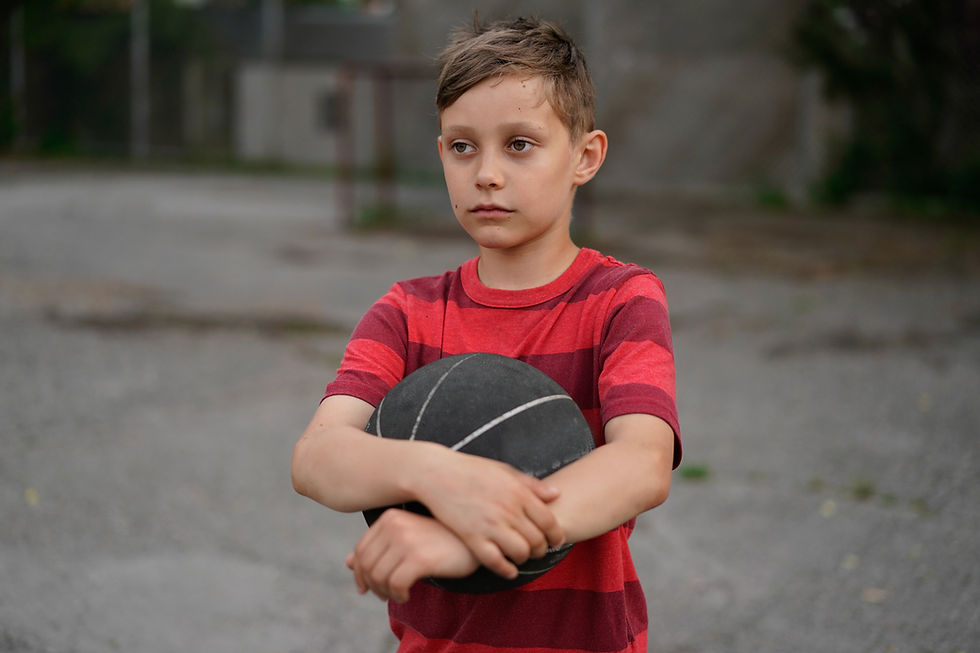I LIKE ME, I REALLY LIKE ME!
- adinalisw

- Jul 22, 2021
- 4 min read
Did you ever come across a friend or student who wasn’t able to feel good about him or herself no matter how well he or she did? Our confidence is based less on achievements, and more on our assumptions. Students can be helped to understand that to feel more confident, it is helpful to pay attention to the statements we tell ourselves about ourselves.
These statements play inside our heads like an ongoing recording. They are based on things we have heard from the media, peers, teachers, and family members, and then internalized. We often believe these statements without checking whether they are true.
We can help students to edit the assumptions upon which this “self-talk” is based. They can learn to choose the beliefs and build the skills to support themselves and increase their self-esteem. This can lead to greater achievements. It can also prevent students from unhealthy routes to building confidence, like putting others down to make themselves feel better about themselves.
Some people assume that they can only feel good about themselves if they are as smart, pretty, handsome, talented or athletic as someone else. If we pause and check the facts about that assumption, we can see that the word “only” is an exaggeration. We can understand that we have the choice to accept and feel good about ourselves, exactly the way we are.
It is helpful for students to remember that there are a lot of things about the way we are
that we cannot change, like height and eye color. Despite what is presented in the media, students can be helped to understand that these attributes are not the most important things about us anyway. They can be reminded that when we cannot change things, it makes more sense to let go of them rather than allow them to continue to bother us.
Students can be helped to become aware of, acknowledge, and feel good about their more important personal qualities over which they do exert control. They can learn that it helps us to feel good about ourselves if we remind ourselves of the things that make us special. Examples of these might be how kind we are, how hard we try, and how we help others.
There are some things that are a little tougher for us to learn or to do that we have to work harder at. There are some helpful beliefs which make it easier and more fun to keep working on improving. There are other assumptions and thoughts that make this harder to do and not as enjoyable.
Students can learn that some of us assume that no matter how hard we work, we will
never be successful, so we might as well give up. When they look at the exaggerations and check the facts, they can see that if they keep on trying, it is very possible that they might be pretty successful! Another assumption that makes it harder to feel good about ourselves is when we assume that it is awful if we are not perfect. When they look at the exaggerations and check the facts, students can understand that perfection isn’t attainable or necessary. They can learn that all they can do is the best that they can do, and mistakes are just a part of how we learn.
Students can also learn to take pride in their achievements, no matter how small, rather than focusing on their perceived weaknesses. They can learn that when we take pride in small successes, this can motivate us to continue striving. They can also learn to be proud of the effort they make in addition to the positive end results.
Additionally, students can learn that there are some people who don’t really know how to feel good about themselves in kind and helpful ways. They don’t know about the importance of letting go of what they can’t change, reminding themselves of what they do well, and knowing how to keep on trying and not worry about making mistakes. They feel bad about themselves, and assume that in order to feel good about themselves, they must make others feel bad about themselves. They tease, put other people down and act as bullies.
It is possible to help these students learn that putting others down is not an effective way to feel better about themselves. In addition to teaching them more effective routes to confidence, these students have been able to learn that complimenting others makes you and the person being complimented feel good.
Students can learn the choices they have if they ever get bullied. First, if they are being bullied with words, and someone is not trying to hurt their bodies, they can take a slow breath, let it go and ignore it. They can choose what words and whose voices they listen to and remind themselves of what they know is true about themselves.
They can use their “I Messages”, saying, “When you put me down I feel sad and angry. I would like you to please stop.” If the put-downs continue, students need to know that they can find an adult and let them know what is happening. If, however, another student is trying to hurt their bodies, students need to know to leave and find an adult right away. They can also learn that they can be upstanders and stand up for a person they see being bullied.
We can reinforce healthy routes to building confidence with stories, books, and songs. For ideas, please see the provided lists in the “For Whom” section of this website.









Comments